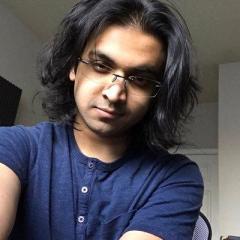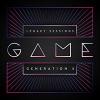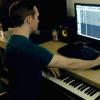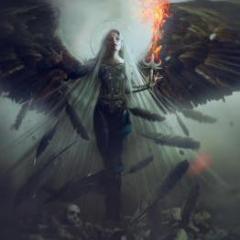Leaderboard
Popular Content
Showing content with the highest reputation on 11/16/2015 in all areas
-

Logic or...?
Philip Robinson and one other reacted to Nabeel Ansari for a topic
I have a rule for people getting started, and that is don't get caught up in what's the best and what sounds like it has the most value (features, sound quality, etc.) When you're getting started, you need a baseline. The baseline is the set of instruments (or even just one library, like Albion, Symphobia, EWQLSO) that you learn how to use and you're "set". Meaning you can write orchestral music using them, and that's your fallback level of quality for mockups and such. Your baseline can be feature-rich and detailed (the Hollywood series) or incredibly dumbed down and easy to use (like ProjectSAM Orchestral Essentials). Once you have your baseline, and you are consciously feeling like "I'm trying to write music with a certain sound but my current set doesn't let me do it, but that other set will", only then should you start buying more libraries. For instance, let's say my baseline strings are CS2. CS2 is amazing, but it has no divisi. If I'm working on something and I need to write divisi, that's when I'm able to justify buying a library with divisi (like LASS or NISS). If I like to centerpiece a violin in my orchestra, I invest in a solo violin like Embertone Friedlander. NEVER BUY SAMPLE LIBRARIES OR INVEST INTO FEATURES BECAUSE YOU THINK YOU'RE SUPPOSED TO HAVE THEM OR "MIGHT USE THEM LATER ON". This is a slippery slope that never financially pans out in your favor (it may creatively, but I only give practical advice). You end up buying a metric ton of shit you never use in your music, and keep buying more when you get excited about new releases from your favorite companies to build up your "library". Don't "build up your library". I took that stance with purchasing stuff and I have bought so many thousands of dollars worth of tech I don't use and rarely have ever used outside of a single project. It's one of my biggest life regrets, actually, to be tangentially dramatic. It burns mostly because most developers employ a no resale policy, so I can't sell something when I'm done with it. It digitally follows me and stays on my Kontakt drive forever, and ever, and ever, and ever... Start with your baseline, and buy something when your baseline doesn't cut it. As you absorb more stuff into your baseline, you use it more often because it's the sounds you really wanted, and it becomes your new baseline. That's why amazing computer orchestrators layer different libraries. They didn't learn "layering tricks" from Daniel James on YouTube then go out and buy 3 different string libraries to stay in the game; they went through the grueling process of deciding their current libraries weren't giving them the sound they wanted, then visiting the market to find who developed a library for it.2 points -

OCR Secret Santa 2015
WiFiSunset reacted to Bahamut for a topic
Hey everyone, it's that time of the year again - the OCR Secret Santa! Signups are now! Just mosey your way over to https://docs.google.com/forms/d/1HY_84W7Oj-hM1pz9mYzZ6X6pxso3hp2sjTTfhvM9vwM/viewform?usp=send_form and add in your information and I will add you to the list. Then come back here to post any particular items you would like to potentially receive, or other random finds. An important note: how expensive a gift is should not matter - people have given great low cost gifts in the past, some handmade. Do not let money be a deterrent, as it is not necessary for giving a good gift. Participating: Anorax Arrow Bahamut Bardic Knowledge Capa Langley Cash Chernabogue Cosmic Sounds DragonAvenger Flexstyle Hyperion5182 JaDeARanHaRuNo kitty Koriantor Project Spam OA prophetik music Rexy Supercoolmike Tables The Damned theshaggyfreak wildfire1 point -

Legacy Sessions: GAME Generation 5 (32-bit Era Favorites Performed Live)
Eino Keskitalo reacted to legacysessions for a topic
I'd like to introduce everyone to our new album Legacy Sessions: GAME Generation 5, a new album featuring classic melodies from the Nintendo 64 and PlayStation era, arranged and performed live by professional studio musicians. Please see the info below, and if you like the album please help spread the word because we'd like to make more of these from other gaming generations! Follow Legacy Sessions on Twitter and Facebook, and visit the official website for future announcements and music video releases. --------------------------------------------------------------------------------------------------------------------------------------------------------------------------------- Lead arranger Casey Ormond--best known for his arrangements and performances on Piano Collections: Final Fantasy XII and Valkyria Chronicles Piano Pieces--leads a team of talented arrangers and musicians as they revisit several of the most memorable melodies from the 32-bit era including tributes to Final Fantasy VII, Castlevania: Symphony of the Night, Super Mario 64, and more. The album is fully licensed and available now for $12 via Loudr: Legacy Sessions: GAME Generation 5 on Loudr The album is additionally available from iTunes, Amazon, and Google Play. The full track list for Legacy Sessions: GAME Generation 5: 01. Final Fantasy VII 02. The Curse of Monkey Island & Grim Fandango 03. Super Mario 64 & The Legend of Zelda: Ocarina of Time 04. Pokémon (Blue, Red, Yellow) 05. Super Mario 64 06. Chrono Cross 07. Castlevania: Symphony of the Night 08. Silent Hill 09. Final Fantasy Tactics 10. Final Fantasy IX 11. Metal Gear Solid 12. Grandia (ft. With Ether) "My goal as an arranger is to do more than just stir up nostalgia," reflects lead arranger Casey Ormond. "Instead, I focus on experimenting with and combining iconic themes to spark the listeners' imagination, creating new thematic and musical narratives. This is a method that I have refined through my piano works--Piano Collections FINAL FANTASY XII and Valkyria Chronicles Piano Pieces--and I hope that you enjoy discovering and rediscovering the classic music of the fifth generation of consoles!" Additional arrangers include lead Valkyria Chronicles orchestrator Nicole Brady, Tristan Coelho, and guitar duo With Ether, who have recorded an energetic medley from Grandia. The production of Legacy Sessions: GAME Generation 5 has been headed by producer Demetri Potiris, who has worked with both the Eminence Symphony Orchestra and the renowned sound studio of Hitoshi Sakimoto, Basiscape. His experience producing live game music events and recording sessions for original soundtracks like the Tactics Ogre remake, Tekken 6, and the Valkyria Chronicles series sparked his desire to produce Legacy Sessions, which has been planned as a series that will explore other gaming generations, including the 8-bit and 16-bit eras. If you have any questions or comments on the album, it's production or game music in general, please let us know here!1 point -

Computers for Composing
Flexstyle reacted to Sam Dillard for a topic
From my own personal experience, I was running into bottlenecks with my 32GB RAM machine, so I recently custom built a new workstation with 64GB, 8-core i7 (4.5GHZ), and PCI-E SSD for sample library storage. I still use Windows 7, as it works great and is fully compatible. Kontakt generally works best with more cores, especially with multiple instances loaded. I tend to have about 12 Kontakt 5 instances fully loaded at any given time. A 6-core machine is actually fine for that if your audio interface isn't set at super low latencies though. And in my opinion custom building a workstation is really the only way to go. I have built my own machines for many years and would personally never buy an "off the shelf" system. Of course, I have very specific needs for my hardware however as I primarily do high end orchestral production (very RAM and storage intensive), 3D animation (very CPU intensive), and video editing (both) so yeah. And for cases, as I read someone else mention earlier, I highly recommend Cooler Master. That's my two pesos anyway, -Sam1 point -
Romancing SaGa 3 - Katrina's Theme (sax cover)
subversiveasset reacted to Bowlerhat for a topic
Yeah, voicing is quite hard. I think what went wrong in your mix is that you tried to include too much things in it. It kind of makes sense that you want to fill the soundscape as much as possible because you only have saxes and drums, but you can't fit so much lines of the same kind of instruments into one phrase. I'll try to analyze some parts a bit, and explain what you could improve. Something that's really odd about this mix is that you voiced everything for 3 horns. It may seem logical, because you've got three horns. But it's odd because you don't have a bass, or guitar, or any other kind of other instrument other than those three horns. So you're missing all of the bass tones. I'm not sure, but I'm going to assume you used an alto, tenor and bari. I'm not that familiar with saxes, so I could be wrong. But if my assumption is right, then I'd suggest to change the bari and tenor parts a bit. I think it'd be best to just have the bari play the bass chord tones. You could have a few lines in between, or leading from chord tone to chord tone, but at least give us, as the listeners, some harmonic context. Right now there is a lot of harmonic context missing, and it sounds quite empty. As for the tenor, when you're writing for 2 horns, the bari excluding, and you're using a lineair approach (since that's what you're doing), it's important that the two voices, when played above the chord tone, always imply the harmonic progression. That's also why it's important to have the bari play the chord tones. So, when the lead for example plays the third of the chord, the second voice could play the seventh, or perhaps the fifth. Not something like the sixth, or the tonic. And especially not the second or the fourth, since that clashes with the third. There are obviously quite some more things about voicing for 2 horns, but this is the thing that is going wrong the most. Your writing has a lot of countermelodies. Which is really nice, I especially like the last high alto line. But the melodies have to fit into the harmonic soundscape that you're creating. If it doesn't, it creates the clashing you've got right now. Also, for the tuning, it's especially in the baritone sax. For example at 00:59, but not only there. I hope this helped a bit!1 point -

Speeding Towards Adventures: 25 Years of Sonic the Hedgehog - History
Jorito reacted to Black_Doom for a topic
Sbeast submitted a pretty short-but-sweet symphonic rock arrangement of Boss Theme form STH2 and I guess it's cool We can make it! If we all stick together, we won't give up, not ever...1 point -
1 point
-

Computers for Composing
WiFiSunset reacted to Nabeel Ansari for a topic
Jesus am I getting old? The Storm Scout and the Antec 300 are nowhere to be found on Newegg anymore but also the site seems broken right now? The latter was just a generally solid popular case, and the former is my case that I've had and loved for the last 4.5 years, especially with its handles and the cool-ass warped window shape. Anyways, the HAF is a solid choice that seems to still be around , and super popular. Most commercial composers have machines with either 64GB or 128GB, along with slave machines hooked up over ethernet with VE Pro serving them samples that are processed off the main computer but (whose output audio is) still transferred back fast enough for real-time playback. Don't get confused either, VE Pro is by Vienna Samples, but it's not just for their products. It's a networking host system that you can load VST's in and set up the MIDI communications over network.1 point -
Romancing SaGa 3 - Katrina's Theme (sax cover)
subversiveasset reacted to Bowlerhat for a topic
Hey, I like most of the original work in it, but some of the part sound a bit awkward melodically. Also there are quite some harmonic clashes in your writing. Tensions are nice, but not when you play them on the top of your voicing. Some minor parts are a bit out of tune as well. But overal it sounds nice!!1 point -

Heart of a Gamer: A Tribute to Satoru Iwata - History
Black_Doom reacted to Drawn by Dai for a topic
I'm still not sure what the preferred layout is. Here's the CD label and full res pattern for a printable sleeve (both with 3mm bleeds) but I don't know whether scales for a jewel case are required as well. I've PM'd Liontamer to see whether he has any specs but no reply as yet. I guess he's off taming lions . Also I still need an upload link. If anyone can help me out with that I'll buy you a pack of gummy bears (I won't buy you a pack of gummy bears) Cheers!1 point -
1 point
-

Arcadia Legends - History
Eino Keskitalo reacted to Drawn by Dai for a topic
Just putting my bit in here, would you be interested in using my services as an artist? I'm currently wrapping up the artwork for the Satoru Iwata tribute album, and though I don't want to corner the market as it were, I'd be more than interested in helping out visually with Skies. How could I not, with such an iconic game? You can take a look at some of my artwork on my online portfolio (though bear in mind, a lot of the site is still under construction): http://www.davyowen.com/illustration Cheers Odai1 point -

Logic or...?
OceansAndrew reacted to SnappleMan for a topic
Logic and most other DAWs are FANTASTIC for orchestral music. So fantastic that the worlds most talented and esteemed composers use them for scoring. What you want to look into these days are libraries like Spitfire's Albion series, East West Hollywood Strings/Brass, Berlin Woodwinds/Strings, 8Dio's Adagio series, LASS2 and Cinesamples' offerings also (especially Cinepercs). There are all kinds of awful misinformed opinions floating around out there about using specific DAWs or notation software like Sibelius but if we listened to types of opinions we'd all be using Pro Tools and buying $5,000 hardware compressors and EQs. In the end all that a DAW does is with regard to orchestral sounds is create a way for you to enter notes into VSTs, even if you go the notation software route you're going to need the same VSTs (in Logic's case AU), and you'll have to painstakingly edit legato transitions, note start times, mod wheel transitions, decays, keyswitches, arpeggiators and faulty Kontakt scripts (or god forbid you go via EastWest and have to deal with the PLAY engine...) in the same exact way. Any DAW out there that supports VST/AU will work pretty much identically in that regard. So yeah, composing the song may be at best 40% of the work. The rest of the work comes down to you and your DAW, and spending many many hours trying to make your thousands of dollars of samples sound decent. So if you are used to GarageBand and can work well in it, go with Logic and you'll be set. Always remember that writing your music is step 1, and orchestrating it is step 2, and in the digital music realm you're orchestrating a second time for the samples, not to an orchestra, and that requires ridiculous amounts of editing because every sample library is recorded differently with its own legato timings,keyswitches, crossfades, patch structure and all around quirks.1 point -

V-jams (VGM arrangement project featuring all LIVE instrumentation/vocals)
DetectiveTuesday reacted to Gario for a topic
Loved it. Great work on it all, guys.1 point


